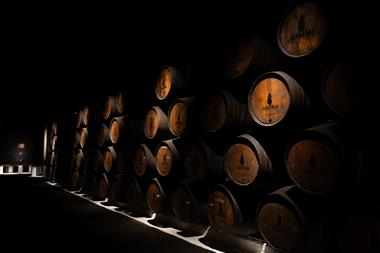Italy has become the first country to ban the production, distribution and import of cultivated meat, which is cultured from animal-derived cells and requires no slaughter. The Italian parliament passed the new law after months of consideration.
‘In defence of health, of the Italian production system, of thousands of jobs, of our culture and tradition, with the law approved today, Italy is the first nation in the world to be safe from the social and economic risks of synthetic food,’ Italy’s minister of agriculture, Francesco Lollobrigida, announced on Facebook on 16 November. The measure also prohibits the use of meat-related terms, like ‘salami’ or ‘steak’, for plant-based meat substitutes.
When the ban was proposed earlier this year, Lollobrigida had indicated that its main goal was to protect Italian farmers. Other government officials also questioned the quality of such synthetic foods and suggested that they threatened Italy’s culinary heritage. The new law includes fines of between €10,000 (£8716) and €60,000 for each violation.
‘We’ve known it was coming for months, but that doesn’t make it less silly, short-sighted or in breach of EU law,’ stated Robert Jones, vice president of Dutch food technology company Mosa Meat and president of Cellular Agriculture Europe.
Novel food products must be authorised by the European Commission and member states, after a thorough safety assessment by the European Food Safety Authority, before they can enter the EU market, Cellular Agriculture Europe notes. The organisation argues that there is no legal reason for Italy to pre-empt this risk assessment and risk management process.
Italy’s decision to reject cultivated meat sets it apart from other nations. Such products have been sold in Singapore since late 2020, and in June the US Department of Agriculture approved two companies – Upside Foods and Good Meat – to make and distribute cultivated meat, following initial safety approvals from the US Food and Drug Administration. These two firms are now selling their chicken products at restaurants in San Francisco and Washington DC, respectively.
Meanwhile, in the absence of EU action, the Netherlands became the first European country to allow pre-approved tasting of cultivated meat in July. The Dutch government has worked with cultivated meat companies like Mosa Meat and the Dutch biotech industry association HollandBIO to create a ‘code of practice’ that makes such tasting possible in a controlled environment.
In Romania, however, the Senate has voted to prohibit the sale of cultivated meat, and this measure awaits approval by the lower house of parliament. If enacted, it would mean fines of between €40,000 and €60,000 for violations.
One state in the US, Florida, is also trying to clamp down in the face of federal action. Republican state congressman Tyler Sirois has introduced legislation that would make it illegal to produce, sell and distribute cultivated meat in the state, with the goal of helping to protect Florida’s cattle and farming industries. Under the proposed law, violators would reportedly face a second-degree misdemeanour charge, as well as a fine of between $500 (£400) and $1000. If enacted, the bill is expected to come into force in July next year.

















No comments yet